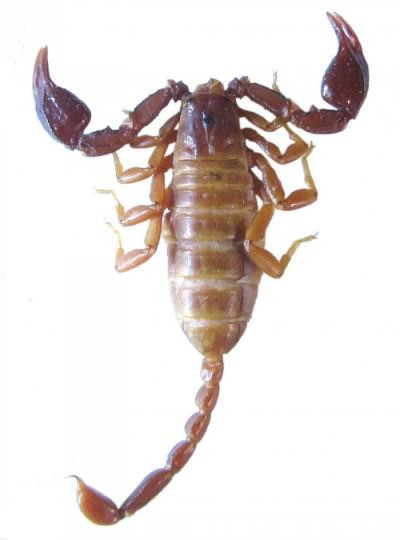New Scorpion Species Found In Turkey, Mysterious Euscorpius Lycius A Thing Of Ancient Myth

We can now add one more species to the global scorpion roster. Scientists have discovered a new and mysterious scorpion species, Euscorpius lycius, in southwestern Turkey, in what was once ancient Lycia.
“Like the mystical history of the region, the new species is rather secretive and can be found mainly at night hidden away in pine forests, crawling on rocks or sitting on stone garden walls,” Science 2.0 noted. “All localities where the species was found were humid and cool, with calcareous stones covered with moss.”
The poisonous pincher is relatively small for a scorpion, measuring between 2 and 2.5 centimeters long – compared to some scorpions that can reach nearly 25 centimeters (10 inches) in length. Euscorpius lycius has a pale body with claws that are a dark brown or reddish color. The discovery of the new species of Euscorpius brings the number of known species of that genus to five.
Luckily, there’s no need to go scrambling up the kitchen counter just yet. According to a study of the new scorpion species, published in the journal ZooKeys, the critter isn’t particularly poisonous to humans. Its sting is likely to feel more like a mosquito bite than a painful jab.
"A total of 26 specimens belonging to the new species were collected from Antalya and Muğla Province, in the southwest of Turkey," Ersen Aydın Yağmur, the lead author of the study, said in a statement about the new species of scorpion. "Further studies are in progress to understand the quantity and distribution of the different species and populations of the genus Euscorpius in Turkey and their relationship with the Greek populations."
There are about 1,200 scorpion species worldwide, but only 30 or 40 of them have venom strong enough to kill a person. Scorpions are found on every major land mass, except for Antarctica. Their resilient nature allows them to live in some of the planet’s toughest environments. Scientists have found that even after freezing a scorpion overnight and thawing it the next day, some scorpions simply get up continue about their business.
Like their cousins spiders, mites and ticks, scorpions are arachnids and have been around since before the time of the dinosaurs. According to National Geographic, scientists think scorpions, which somewhat resemble lobsters, were among the first animals to migrate from water to land hundreds of millions of years ago. Fossils recovered from Scotland show that ancient scorpions were twice as big as their contemporary descendants.
© Copyright IBTimes 2025. All rights reserved.






















